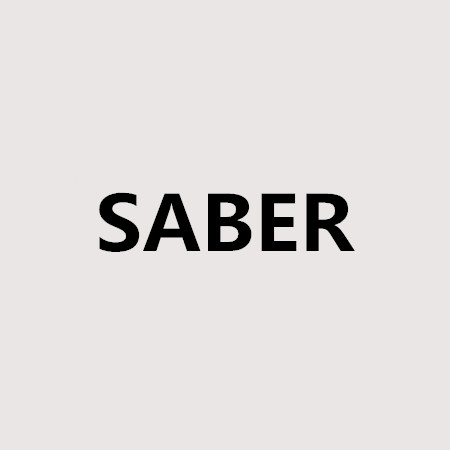UL认证 vs. CB认证:美国与国际市场认证的差异
在全球范围内,产品认证是企业进入国际市场的重要通行证。随着全球化进程不断加深,各国对产品认证的要求也越来越严格。UL认证和CB认证是两种常见的产品认证方式,分别代表了美国和国际市场的认证标准。本文将从认证机构、认证范围、认证流程等方面来探讨UL认证和CB认证的差异,以便企业更好地了解在美国和国际市场销售产品的要求。
UL认证
UL是美国的一个独立的产品认证机构,成立于1894年,总部位于芝加哥。UL认证是美国国内市场的重要认证标准,也被广泛接受和认可于世界各地。UL认证主要涵盖了产品的安全性和可持续性方面,包括电气设备、消费品、建筑材料、化工产品等各个领域。
UL认证的产品范围非常广泛,几乎覆盖了所有与产品相关的领域。UL认证的流程相对较为复杂,需要提交产品样品进行实验测试,并且需要对产品的制造工厂进行审核。UL认证的产品通常会在产品上贴有UL标签,以示其通过了UL的认证要求。
CB认证
CB认证则是国际电工委员会(IEC)推出的国际认证方案,覆盖了全球范围内的多个国家和地区。CB认证的机构包括了全球范围内的认证机构,比如DEKRA、TUV、SGS等,其认证标准统一,相互认可。
CB认证的产品范围同样十分广泛,包括电气设备、信息技术设备、医疗设备、家用电器等各个领域。CB认证的流程相对较为简单,申请者只需提交产品样品进行测试,通过后即可获得认证。获得CB认证的产品会在全球范围内获得认可,可以方便地进入国际市场。
认证差异
从认证机构来看,UL认证是美国本土的认证机构,主要服务于美国市场,而CB认证是国际性的认证机构,适用于全球范围内的多个国家和地区。从认证范围来看,UL认证的产品范围广泛,几乎覆盖了所有类型的产品,而CB认证同样也覆盖了众多产品领域,但在某些领域的认可度可能会更高。从认证流程来看,UL认证相对复杂,需要对生产工厂进行审核,而CB认证则相对简单,只需提交产品样品进行测试即可获得认证。
在国际市场竞争日益激烈的今天,产品认证已经成为了企业进军国际市场的重要法宝。UL认证和CB认证分别代表了美国国内市场和国际市场的认证标准,企业在选择认证方式时需要根据自身产品特点和销售市场来进行选择。对于希望进入美国市场的企业,UL认证将会是一个非常重要的认证标准;而对于希望进军国际市场的企业,CB认证将会是一个更为适合的选择。
在申请认证时,企业需要仔细了解认证标准,并根据认证要求来准备相关材料和信息。同时,企业还需要选择合适的认证机构进行申请,以确保能够顺利获得认证。只有通过了严格的认证要求,企业的产品才能够在国际市场上获得认可,从而获得更多的销售机会和竞争优势。
总之,UL认证和CB认证分别代表了美国和国际市场的产品认证标准,企业需要根据自身产品特点和销售市场来选择合适的认证方式。通过严格的认证要求,企业的产品将获得更多的国际认可,从而在国际市场获得更大的发展空间和竞争优势。19
UL vs. CB Certification: Differences between U.S. and International Market Certifications
In the global market, product certification is an important passport for enterprises to enter the international market. With the deepening of globalization, the requirements for product certification in various countries are becoming increasingly strict. UL certification and CB certification are two common product certification methods, representing the certification standards of the United States and the international market, respectively. This article will explore the differences between UL certification and CB certification from the aspects of certification agencies, certification scope, and certification process, so that enterprises can better understand the requirements for selling products in the United States and the international market.
UL Certification
UL is an independent product certification organization in the United States, established in 1894, with its headquarters in Chicago. UL certification is an important certification standard for the domestic market of the United States and is also widely accepted and recognized worldwide. UL certification mainly covers the safety and sustainability of products, including electrical equipment, consumer goods, building materials, chemical products, and other fields.
UL certification has a very wide range of products, covering almost all areas related to products. The UL certification process is relatively complex, requiring the submission of product samples for experimental testing and the inspection of the product's manufacturing facilities. UL-certified products usually have a UL label on them to indicate that they have passed UL's certification requirements.
CB Certification
CB certification is an international certification scheme introduced by the International Electrotechnical Commission (IEC), covering multiple countries and regions worldwide. The organizations participating in CB certification include certification bodies from around the world, such as DEKRA, TUV, SGS, etc., and their certification standards are unified and mutually recognized.
CB certification also has a very wide range of products, including electrical equipment, information technology equipment, medical devices, household appliances, and other fields. The CB certification process is relatively simple, with applicants only needing to submit product samples for testing, and once approved, they can obtain certification. Products certified by CB will be recognized globally and can easily enter the international market.
Differences in Certification
From the perspective of certification organizations, UL certification is a domestic certification organization in the United States, mainly serving the U.S. market, while CB certification is an international certification organization applicable to multiple countries and regions globally. In terms of certification scope, UL certification covers a wide range of products, almost all types of products, while CB certification also covers many product areas, but may have higher recognition in certain areas. In terms of the certification process, UL certification is relatively complex, requiring the inspection of manufacturing facilities, while CB certification is relatively simple, only requiring the submission of product samples for testing.
In today's increasingly competitive international market, product certification has become an important tool for enterprises to enter the international market. UL certification and CB certification represent the certification standards of the U.S. domestic market and the international market, respectively. When choosing a certification method, enterprises need to consider their own product characteristics and sales markets. For enterprises wishing to enter the U.S. market, UL certification will be a very important certification standard; while for enterprises wishing to enter the international market, CB certification will be a more suitable choice.
When applying for certification, enterprises need to carefully understand the certification standards and prepare relevant materials and information according to the certification requirements. At the same time, enterprises also need to choose the appropriate certification body for application to ensure that they can successfully obtain certification. Only by meeting strict certification requirements can a company's products be internationally recognized, thereby gaining more sales opportunities and competitive advantages in the international market.
In conclusion, UL certification and CB certification represent the product certification standards of the U.S. and international markets, and enterprises need to choose the appropriate certification method based on their product characteristics and sales markets. Through strict certification requirements, a company's products will gain more international recognition, thereby obtaining greater development space and competitive advantages in the international market.






